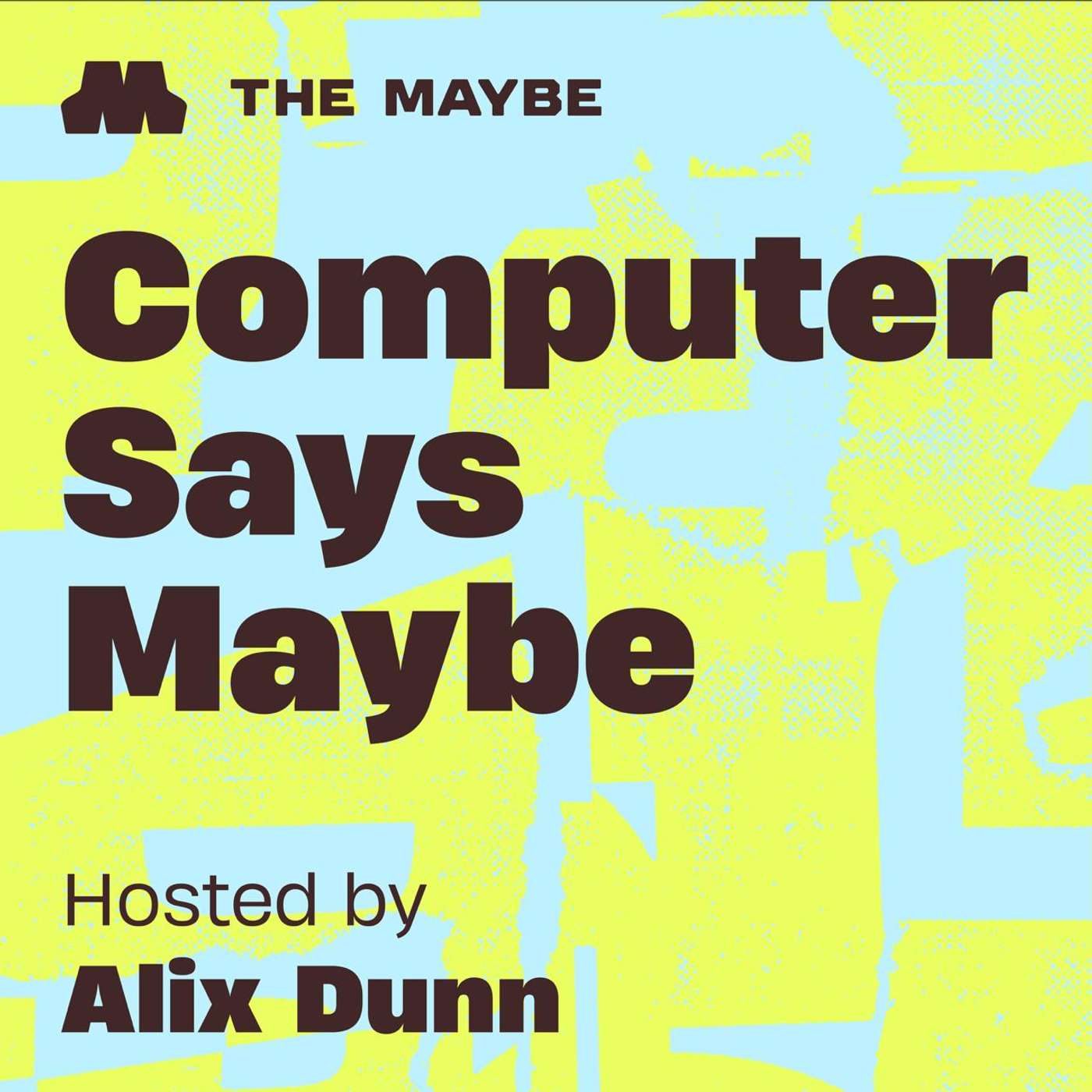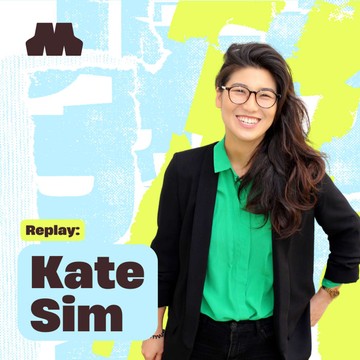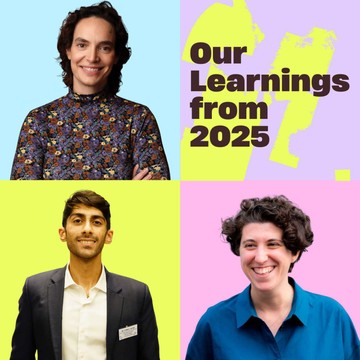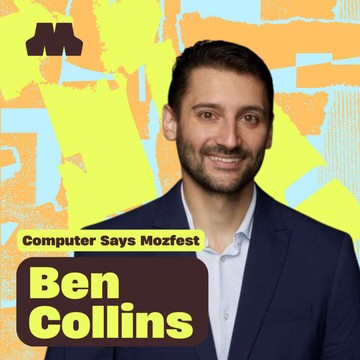

Computer Says Maybe
Alix Dunn
Technology is changing fast. And it's changing our world even faster. Host Alix Dunn interviews visionaries, researchers, and technologists working in the public interest to help you keep up. Step outside the hype and explore the possibilities, problems, and politics of technology. We publish weekly.
Episodes
Mentioned books

10 snips
Jan 16, 2026 • 50min
The Vaporstate: A Digitised India
In this insightful discussion, Aastha Kapoor, co-founder of the Aapti Institute, Mila Samdub, a designer and researcher, and Usha Ramanathan, a veteran lawyer, delve into India's Aadhaar system. They explore its transformation from a simple digital ID to a tool of surveillance and corporate control. The conversation highlights the shift of responsibility onto individuals, technical failures, and the growing private sector involvement. They also address the implications for democracy and public welfare in a digitized society.

6 snips
Jan 9, 2026 • 2min
The Vaporstate: A New Mini-Series
Dive into the world of digital public infrastructure, where unique IDs and payment systems are becoming the norm. Experts discuss the risks of centralizing national IDs and payments under a single government platform. There's a critical look at the influence of big tech companies like Oracle and Google on these systems. The concept of Digital Public Infrastructure is examined, revealing its complexity and resistance to a clear definition. Explore how these changes shape everyday life and what they mean for the future.

9 snips
Jan 9, 2026 • 49min
The Age of Noise w/ Eryk Salvaggio (replay)
Eryk Salvaggio, an artist and critical writer, discusses the shift from the information age to what he calls 'the age of noise.' He explores how generative AI blends stereotypes rather than creating something truly innovative. Eryk critiques how algorithms serve as modern gatekeepers, shaping our access to information and creativity. He emphasizes the importance of maintaining human agency in art and reveals how archival decisions can erase context. The conversation also highlights the intersection of AI, capitalism, and democratic participation.

10 snips
Jan 6, 2026 • 57min
Gotcha! Enshittification w/ Cory Doctorow (replay)
Cory Doctorow, a science fiction novelist and tech activist, dives into the alarming phenomenon of enshittification. He explains how platforms attract users, lock them in, and then exploit them, turning into what he calls 'durable zombies.' Doctorow discusses why technologies can become scams and how concepts like interoperability can empower users. He also introduces the intriguing notion of a ‘chickenized reverse centaur’ to illustrate labor exploitation in the digital age. Tune in for insights on reforming tech policies and escaping platform traps!

Jan 2, 2026 • 47min
Worker Power & Big Tech Bossmen w/ David Seligman (replay)
Litigator David Seligman describes how big tech companies act brazenly as legal bullies to extract wealth and power from the working class in the US.More like this: The Human in the Loop: The AI Supply ChainWe’re replaying five deep conversations over the Christmas period for you to listen to on your travels and downtime — please enjoy!Alix and David talk about legal devices such as forced arbitration and monopolistic practices like algorithmic price fixing and wage suppression — and the cases that David’s team are bringing to fight these practicesFurther reading & resourcesSeligman for Attorney General ColoradoTowards Justice California drivers lawsuitEichman in Jerusalem: A Report on the Banal State of Evil by Hannah ArendtThe Dual State by Ernst FraenkelProhibiting Surveillance Prices and Wages by Towards JusticeGill VS Uber — class action led by Towards Justice**Subscribe to our newsletter to get more stuff than just a podcast — we run events and do other work that you will definitely be interested in!**Post Production by Sarah Myles | Pre Production by Georgia Iacovou

Dec 30, 2025 • 27min
Reporting on AI’s climate injustices w/ Karen Hao (replay)
Reporting on the tech industry proves a huge challenge due to how opaque it all is — Empire of AI author Karen Hao talks us through her investigative methods in a conversation from November 2024.More like this: Net 0++ AI Thirst in a Water-Scarce World w/ Julie McCarthyWe’re replaying five deep conversations over the Christmas period for you to listen to on your travels and downtime — please enjoy!AI companies are flagrantly obstructive when it comes to sharing information about their infrastructure — this makes reporting on the climate injustices of AI really hard. Karen shares the tactics that these companies use, and the challenges that she has faced in her investigative reporting.Further reading:Buy Empire of AI by Karen HaoMicrosoft’s Hypocrisy on AI by Karen HaoAI is Taking Water from the Desert by Karen HaoPost Production by Sarah Myles | Pre Production by Georgia Iacovou

Dec 26, 2025 • 50min
How to (Actually) Keep Kids Safe Online w/ Kate Sim (replay)
A replay of our conversation with Kate Sim, on the state of child safety online.More like this: Dogwhistles: Networked Transphobia OnlineWe’re replaying five deep conversations over the Christmas period for you to listen to on your travels and downtime — please enjoy!Child safety is a fuzzy catch-all concept for our broader social anxieties that seems to be everywhere in our conversations about the internet. But child safety isn’t a new concept, and the way our politics focuses on the spectacle isn’t new either.To help us unpack this is Kate Sim, who has over a decade of experience in sexual violence prevention and response and is currently the Director of the Children’s Online Safety and Privacy Research (COSPR) program at the University of Western Australia’s Tech & Policy Lab. We discuss the growth of ‘child safety’ regulation around the world, and how it often conflates multiple topics: age-gating adult content, explicit attempts to harm children, national security, and even ‘family values’.Further reading & resources:On COSPRs forthcoming paper on the CSAM detection ecosystem. Here is a fact sheet with ecosystem map based on it: https://bit.ly/cospr-collateralOn CSAM bottleneck problem: https://doi.org/10.25740/pr592kc5483IBCK episode on the Anxious Generation: https://pod.link/1651876897/episode/47a8aa95c83be96b044dcb3f4e43d158Child psychology expert Candace Odgers debunking Jonathan Haidt’s claims in real-time here: https://tyde.virginia.edu/event/haidt-odgers/)A primer on client-side scanning and CSAM from Mitali Thakor: https://mit-serc.pubpub.org/pub/701yvdbh/release/2On effective CSA prevention and scalability: https://www.prevention.global/resources/read-full-scalability-report**Subscribe to our newsletter to get more stuff than just a podcast — we run events and do other work that you will definitely be interested in!**Post Production by Sarah Myles | Pre Production by Georgia Iacovou

10 snips
Dec 19, 2025 • 53min
Digitisation, Privatisation, and Human Centipedes: Our Learnings from 2025
Reflecting on 2025, the hosts dive into digitization as a tool for privatization and its impact on democracy. They discuss the troubling trend of outsourcing government tasks to private entities, which can erode public trust. The conversation touches on AI, surveillance culture, and how community care can be more effective than top-down monitoring. They explore Taiwan's vital role in global chip manufacturing and challenge the notion of security tied to its dominance. Finally, the episode critiques multi-level marketing's exploitation disguised as opportunity.

Dec 18, 2025 • 11min
Ben Collins: Computer Says MozFest
The Onion CEO Ben Collins has successfully turned political satire into a sustainable business. He explains why humorous messaging is important to understand times like these — and why he’s dead serious about buying Infowars.Head to our feed for more conversations from MozFest with Abeba Birhane, Audrey Tang, and Luisa Franco Machado.Further reading & resources:Read The Onion, America’s finest news source, if you don’t already…The Onion to buy Infowars**Subscribe to our newsletter to get more stuff than just a podcast — we run events and do other work that you will definitely be interested in!**Post Production by Sarah Myles | Pre Production by Georgia Iacovou

Dec 17, 2025 • 23min
Audrey Tang: Computer Says MozFest
Audrey Tang has some big ideas on how we can use collective needs to shape AI systems — and avoid a future where human life is seen as an obstacle to paper clip production. She also shares what might be the first actual good use-case for AI agents…Further reading & resources:6-Pack of Care — a research project by Audrey Tang and Caroline Green as part of the Institute for Ethics in AIMore about Kami — the Japanese local spirits Audrey mentions throughout the conversationThe Oxford Institute for Ethics in AI**Subscribe to our newsletter to get more stuff than just a podcast — we run events and do other work that you will definitely be interested in!**Post Production by Sarah Myles | Pre Production by Georgia Iacovou


